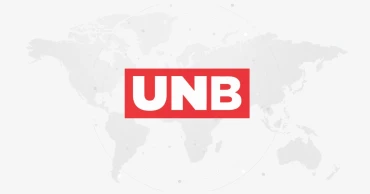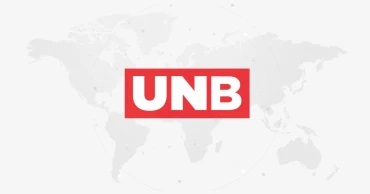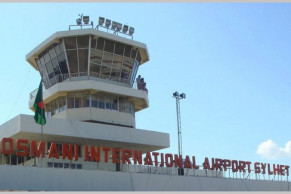cigarette
Bangladesh Economic Association proposes 70 percent tax on cigarettes, tobacco
The Bangladesh Economic Association (BEA) has proposed a 70 percent tax on all types of cigarettes and tobacco in the next budget.
The association reckons that doing so will reduce smoking by about 66 percent, alongside generating revenue of Tk1,700 crore for state coffers.
The proposal was submitted to the National Board of Revenue (NBR) during the pre-budget discussion held at the NBR Building on Sunday (February 18).
The General Secretary of the BEA Professor Dr. Md. Aynul Islam presented the budget proposal. Vice President of the association Professor Hannana Begum was present.
Read more: Govt cut VAT, duty on import of 4 essential items ahead of Ramadan
According to the BEA's proposal, imposing a single supplementary duty of 70 percent on all types of cigarettes would increase the price of cigarettes by an average of 130 percent.
Smoking will be reduced by 66 percent. About 70 lakh smokers will quit smoking, and about 71 lakh young people will stop habituating to smoking. Also, the additional tax revenue of the government will be earned at least Tk1700 crores, the proposal stated.
Similarly, the BEA demanded to impose a tax of 70 percent on all types of tobacco products including smokeless tobacco such as jorda, gul, sadapata, etc.
On the other hand, in the case of bidi, if the tax is imposed at the rate of Tk 4.90 on the retail price of every 25 shalak (piece) packet, the government will be able to collect additional revenue of Tk 800 crore.
Read more: ICMAB delegation takes part in pre-budget discussion with NBR
The BEA thinks with such a tax increase; revenue earning will be raised and it would help to revive the economy from the ongoing economic crisis. The BEA has a total of 27 new sources of revenue income.
At this time, Prof Aynul said, as a method of gathering resources for the upcoming budget, no pressure can be applied on the general population, such as the poor, lower class, lower middle class, and middle class.
Due to various reasons, this class of people is now in a severe economic crisis. It would be unfair at this moment to rely completely on them as in the past for tax collection.
In that case, the imposition of additional income tax on these three groups – the super-rich, the rich, and the upper-middle class – can be considered, said Prof Aynul.
Read more: PROGGA, ATMA for imposing specific taxes on tobacco products
1 year ago
PROGGA, ATMA for imposing specific taxes on tobacco products
Research and Advocacy Organization PROGGA (Knowledge for Progress) and Anti-Tobacco Media Alliance (ATMA) have demanded the government to impose specific taxes on cigarettes and other tobacco products in the upcoming budget for 2021-22.
In a press conference held virtually on Tuesday, the two organizations unveiled their proposals regarding tobacco taxes and prices in the 2021-22 FY national budget.
Implementation of proposals would prevent premature deaths of nearly 390,000 current adults and 400,000 current youth, according to release.
Also read: Dhaka Conference: Amend tobacco laws, impose specific taxes
In addition, supplementary duty, health development surcharge and VAT on cigarettes would also earn the government Tk 34 billion in additional revenues, the organizations claim.
The Project Head of Tobacco Control at PROGGA Md Hasan Shahriar presented the budget proposals are-- Introducing a tiered specific excise (supplementary duty -SD) with uniform tax burden (SD share of 65% of final retail price) across all cigarette brands.
In the low-tier, the retail price should be set at 50 for 10 sticks, followed by Tk 32.50 as specific supplementary duty (SD); In the medium-tier set the retail price at Tk 70 for 10 sticks and Tk 45.50 should be imposed as SD; In the high-tier, the retail price should be set at 110for 10 sticks, followed by Tk 71.50 as SD; and in the premium tier, set the retail price at Tk 140 for 10 sticks and BDT 91 should be imposed as SD.
Read Amend existing law to build tobacco-free Bangladesh
Reducing price tiers from four to two in the medium-term (2021-22 to 2025-26) by reducing the gaps in final prices and tax rates between cigarettes brands
For 25 non-filtered bidi sticks, the retail price should be Tk 25, followed by a specific supplementary duty of Tk 11.25. The price for 20 filtered sticks should be Tk 20, which will be followed by a specific supplementary duty of Tk 9. As a result of such measures, in both filtered and non-filtered bidis, the specific supplementary duty will be 45 percent of final retail prices.
For SLT products, the price per 10-gram jarda and gul should be Tk 45 and 25 respectively. A specific supplementary duty of Tk 27 should be imposed on per 10-gram jarda. For gul, the specific supplementary duty should be Tk 15. As a result of such measures, in both jarda and gul, the specific supplementary duty will be 60 percent of final retail prices.
Read Bring smokeless tobacco products under tax net: PROGGA
They also propose to retain the existing 15% Value Added Tax (VAT) and 1% Heath Development Surcharge on all tobacco products.
According to the Global Adult Tobacco Survey (GATS), 2017, between 2009 and 2017, there has been a 1.5 million increase in the number of cigarette users. The numbers reveal that the existing tobacco tax structure has not been contributing to make Bangladesh a tobacco-free country by 2040, as envisioned by the Honorable Prime Minister.
With the ongoing second wave of Covid-19 pandemic, the health sector and overall economy of the country are going through precarious condition. If tobacco use goes unchecked during such a period of vulnerabilities, it would put the additional risk for public health, Shahriar added.
Also read:1.26 lakh people die in Bangladesh every year in diseases ...
According to World Health Organization (WHO), smokers are more likely to become severely ill when infected with covid-19. This makes the existing tobacco users, around 40 million in number, extremely vulnerable to severe covid-19 infection.
In Bangladesh, tobacco use claims 126,000 lives prematurely each year. In a 2019 study titled “Economic Cost of Tobacco Use in Bangladesh: A Health Cost Approach”, it was revealed that in 2017-18, the economic cost (medical expenses and loss of productivity) of tobacco use stood at Tk30,560 crore while revenues from the tobacco sector in 2017-18 FY was only Tk 22,810 crore.
He also said raising the prices of tobacco products would discourage the youth from starting use and getting addicted while encouraging the existing users belonging to the poor demographic to quit.
Read 10 people fined Tk 2,000 for smoking in public place
Supporting fully the budget proposals to increase tobacco taxes and prices, the convener of the National Anti-Tobacco Platform Dr Qazi Kholiquzzaman Ahmad said the government must look for the welfare of the people, as dictated in our Constitution.
“Unfortunately, the government only prioritizes the revenue aspect, turning a blind eye to how it impacts the lives of the people.” he also said.
Former Vice-Chancellor of Dhaka University Professor Dr AAMS Arefin Siddique said, “To hike tobacco taxes and prices, we can always follow the precedents set by neighbouring Sri Lanka. We can progress through learning from each other. We also need to educate the youth on the detrimental effects of tobacco.”
Read Tobacco causes 20% of deaths from coronary heart disease.
Senior Research Fellow of the Bangladesh Institute of Development Studies (BIDS) Dr Naznin Ahmed said taxes at a specific rate should be imposed on tobacco. It will benefit the government
“The covid-19 pandemic has created an opportunity for broader tobacco control. To utilize this, we need to make the harmful effects of tobacco widely known.” She also said.
The Research Director of Bangladesh Institute of International and Strategic Studies (BIISS) Dr Mahfuz Kabir said the tobacco taxation structure requires fundamental reform. With that end in mind, specific supplementary duty needs to be introduced.
Read Tobacco ban: Industries Ministry quashes health division's proposal
“The implementation of taxation and price related budget proposals, particularly in the low-tier cigarette brands, would significantly increase revenues and lower the health risk of poor demographic, considering the fact that 72 percent of cigarette smokers are users of low-tier brands.” Md Mostafizur Rahman, Lead Policy Advisor for Campaign for Tobacco-Free Kids (CTFK), Bangladesh said.
“We hope, the National Board of Revenue (NBR) will adopt the proposals. It will increase the government earnings, reduce existing tobacco use and also discourage the young from initiating,” Mostafizur added.
Read Are Smokers More Vulnerable to COVID19?
4 years ago
798 cartons cigarette seized at Sylhet Airport
Sylhet, Oct 13 (UNB) - Customs Intelligence officials seized 798 cartons of foreign cigarette from the luggage of three passengers at Sylhet Osmani International Airport on Sunday.
6 years ago





